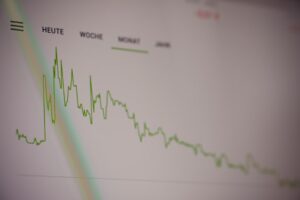How to Determine Your Forex Trading Income Potential: A Comprehensive Guide
Forex trading has gained significant popularity over the years, with more and more individuals trying their luck in the foreign exchange market. The allure of making substantial profits in a short amount of time has attracted many aspiring traders. However, before diving into forex trading, it is essential to determine your income potential and set realistic expectations. In this comprehensive guide, we will discuss the factors that influence your forex trading income and how to calculate it accurately.
1. Understanding Forex Trading Basics
Forex trading involves the buying and selling of different currencies with the aim of making a profit from the fluctuations in their values. Traders speculate on the rise or fall of one currency against another, taking advantage of the constant price movements in the forex market.
To determine your income potential in forex trading, you must first grasp the basic concepts of the market. Familiarize yourself with terms such as pips, lots, leverage, and margin. These terms are fundamental in calculating your potential profits and losses.
2. Setting Realistic Expectations
Forex trading is not a get-rich-quick scheme. It requires time, effort, and dedication to become a successful trader. Setting realistic expectations is crucial to avoid disappointment and frustration. While it is possible to make substantial profits in forex trading, it is equally possible to incur significant losses.
3. Developing a Trading Strategy
A well-defined trading strategy is paramount to determine your income potential in forex trading. Your strategy should include rules for entering and exiting trades, risk management techniques, and the use of technical indicators or fundamental analysis. A robust trading strategy guides your decision-making process and helps you stay disciplined in volatile market conditions.
4. Risk Management
Proper risk management is essential in forex trading. It helps protect your capital and ensures you do not risk more than you can afford to lose. The general rule of thumb is to risk only a small percentage of your trading account on each trade, typically 1-2%. By managing your risk effectively, you can preserve your capital and minimize losses, ultimately maximizing your income potential in the long run.
5. Calculating Your Potential Profits
To determine your forex trading income potential, you need to consider various factors:
a. Trading Capital: The amount of money you have available for trading plays a significant role in your income potential. The larger your trading capital, the more opportunities you can take advantage of. However, it is crucial to allocate a reasonable portion of your capital for trading to avoid overexposure.
b. Average Pip Gain/Loss: A pip is the smallest unit of price movement in forex trading. The average pip gain/loss determines how much you can potentially earn or lose on each trade. For example, if your average pip gain is 10 pips, and you trade a standard lot (100,000 units), you can potentially earn/lose $100 per trade.
c. Trading Frequency: How often you trade also affects your income potential. If you are an active trader, executing multiple trades daily, you have a higher chance of maximizing your profits. However, be cautious of overtrading, as it can lead to impulsive decisions and increased risk.
d. Win Rate: Your win rate refers to the percentage of winning trades compared to losing trades. For instance, if your win rate is 60%, it means you win 6 out of 10 trades. A higher win rate generally translates to higher income potential.
e. Risk-to-Reward Ratio: The risk-to-reward ratio determines the potential profit you can make for every dollar you risk. For example, if your risk-to-reward ratio is 1:2, it means you aim to make twice the amount you are willing to risk. A favorable risk-to-reward ratio enhances your income potential.
6. Backtesting and Demo Trading
Before risking real money, it is advisable to backtest your trading strategy and practice on a demo account. Backtesting involves analyzing historical data to evaluate the performance of your strategy. Demo trading allows you to simulate real trading conditions without risking any capital. These practices help you fine-tune your strategy and gain confidence in your trading abilities.
In conclusion, determining your forex trading income potential requires a comprehensive understanding of the market, setting realistic expectations, developing a trading strategy, and implementing proper risk management techniques. By considering factors such as trading capital, average pip gain/loss, trading frequency, win rate, and risk-to-reward ratio, you can calculate your potential profits accurately. Remember, forex trading is a skill that takes time to master, and consistent learning and practice are key to success.





